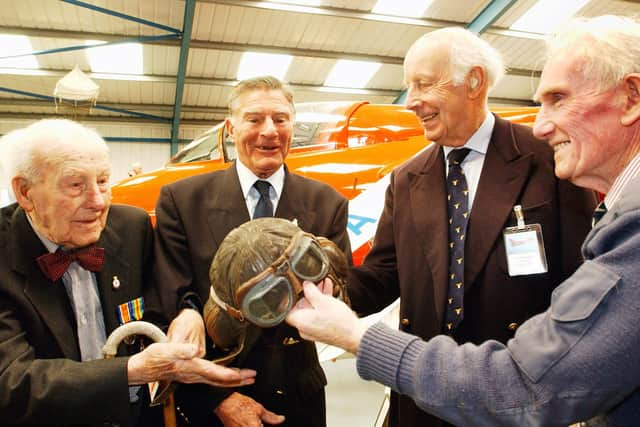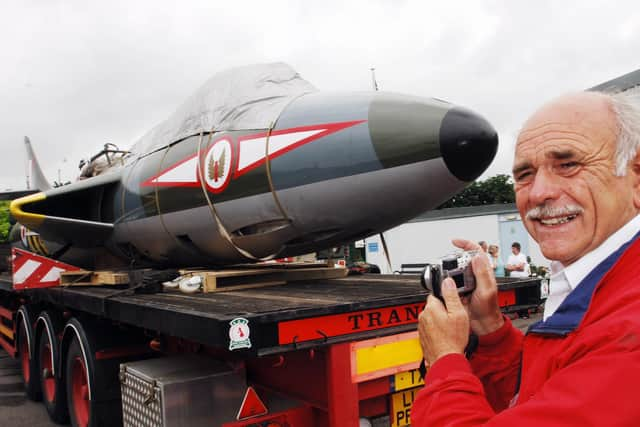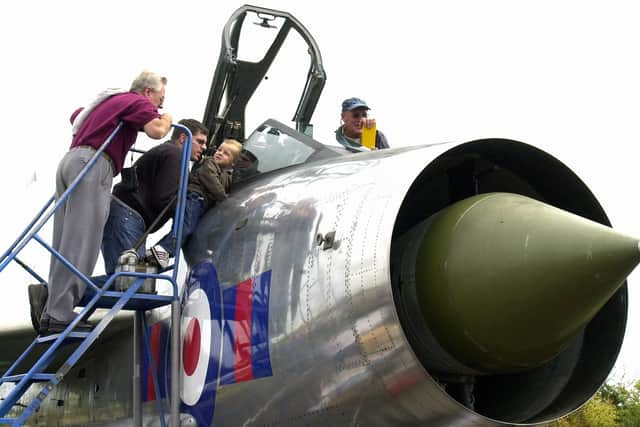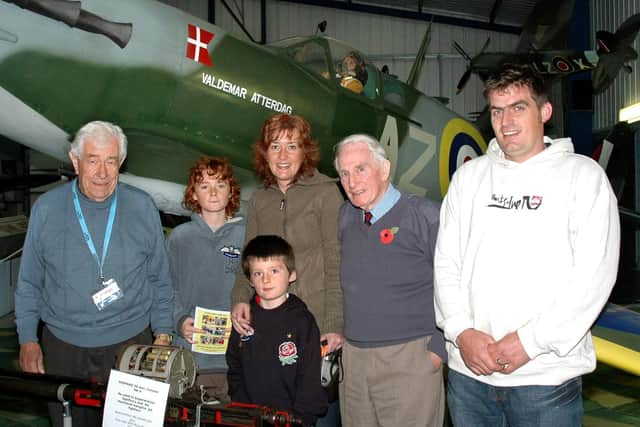Momentous moments at Tangmere Military Aviation Museum, the epicentre of local military history
and live on Freeview channel 276
Now open to visitors for 2024 following a winter refurbishment, the museum continues to reach new heights and can be visited daily until November 30.
Located in what was once a Royal Air Force station, the museum was born out of a shared desire to honour the memory of Tangmere’s significant military involvement from 1917 to 1970.
Advertisement
Hide AdAdvertisement
Hide AdIt is run entirely by a team of knowledgeable and passionate volunteers, a team made up of aviation and history enthusiasts, including some with personal military experience, and local residents.


The museum honours Tangmere's involvement in the wars and remembers the sacrifices the armed forces made to defend the country.
Opened in 1982, the museum houses collections that offer a wealth of information about aviation heritage and the crucial role Tangmere played in defending southern Britain and preventing a German invasion.
In 2005, the museum witnessed a unique encounter involving veterans of both world wars.
Advertisement
Hide AdAdvertisement
Hide AdHenry Allingham, at the age of 108, was the oldest surviving veteran of the First World War. He joined the Royal Naval Air Service in 1915, three years before the formation of the RAF, and his mission was to defend Britain's shores from Zeppelin attacks.


He was at Tangmere to meet Squadron Leader Neville Duke, who was the longest surviving RAF fighter ace, with 28 'kills', and holder of the world air speed record in 1953, piloting a Hawker Hunter.
Joining them was Flight Lieut Nick Berryman, a Spitfire and Hurricane pilot in the Second World War. In the later stages of the war, he served in an air sea rescue capacity, flying Walrus float planes and saving the lives of many pilots shot down in the Channel.
Two years later, the museum celebrated its silver jubilee and in November 2007, broke the record for attendance. The landmark occasion was marked when the Chennell family dropped by and became the 30,000th visitor of the year.
Advertisement
Hide AdAdvertisement
Hide AdThe visitor record exceeded the previous figure by more than 3,000. Susie and Simon Chennell, with sons Alex and Oliver, were awarded free family membership for 2008, as well as a limited edition print.


The museum, in Gamecock Terrace, Tangmere, has a highly-respected collection of aircraft, both original and replica, the Battle of Britain collection and exhibitions on the history of Tangmere. Tickets cost £11 for adults, £5 children. For more information, visit www.tangmere-museum.org.uk or call 01243 790090.
The newest hall is the Meryl Hansed Memorial Hall, housed in a 1950s Line Hut and the focal point of the museum’s preservation efforts. It was opened in April 2006, the first new building at the museum for more than ten years, and the Duke of Richmond unveiled a plaque along with RAF fighter ace Neville Duke.
Here is a rare Hawker Hunter Mk V, which arrived on June 30, 2005, in three separate pieces - a fuselage and two wings. It was donated by Raymond Hansed after more than two years of restoration in a Westergate barn.
Advertisement
Hide AdAdvertisement
Hide AdThe jet joined an English Electric Lightning, also owned by Mr Hansed, and both are displayed in the hangar, named after his late wife.


The Hawker Hunter previously belonged to No 1 Squadron, which has strong associations with Tangmere, having been based there variously throughout its history, including during the Second World War.
It flew from Tangmere during the Suez campaign in 1956 and also operated from Cyprus. It is different to most other Hunters because it has an Armstrong-Siddeley Sapphire engine, whereas most others had Rolls-Royce engines.
In the Battle of Britain Hall, the focus is mainly on the crucial air battles fought in the skies over Southern Britain in 1940. You can see the remains of Sergeant Dennis Noble’s Hurricane, which was shot down in 1940, and read poems written by airmen during the conflict.
Advertisement
Hide AdAdvertisement
Hide AdIn the Tangmere Hall are many exhibits illustrating the history of Tangmere from 1917 to 1970. It tells the stories of aircrew who flew between Europe and the village during the war and houses equipment used, as well as uniform and badges worn throughout Tangmere’s history.
Aircraft in the Merston Hall includes the record-holding Donaldson’s Meteor and Duke’s Hunter, as well as a replica Spitfire and Hurricane, and three flight simulators.
Also on site is a memorial garden honouring those who gave their service and a Second World War air raid shelter, which was recovered from the airfield.